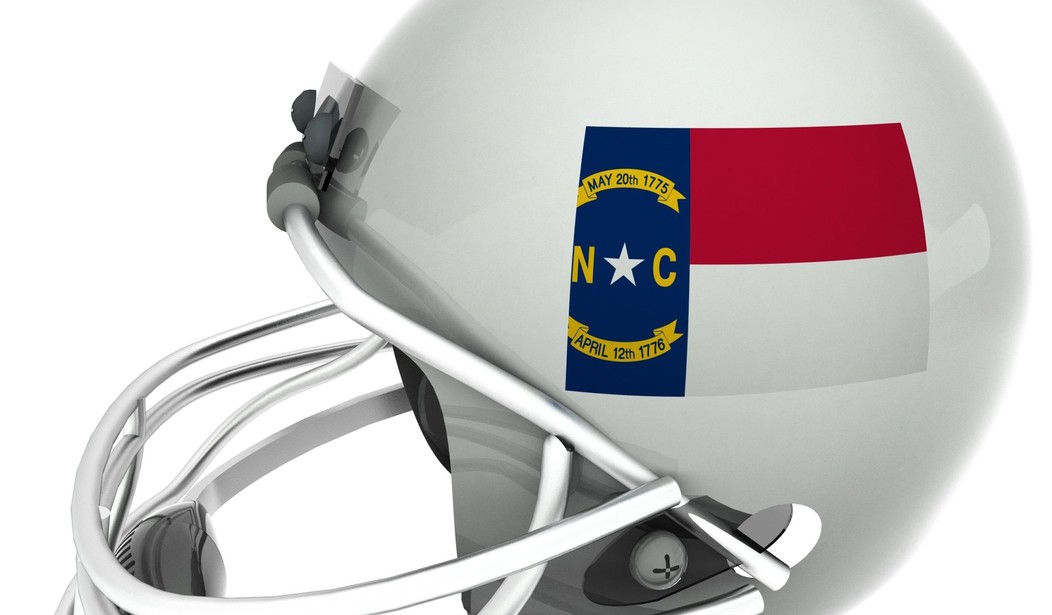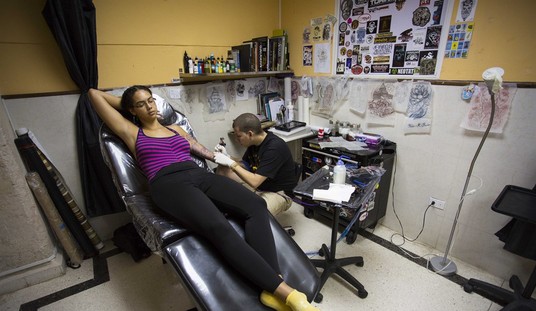On Tuesday, the NCAA announced that it will reverse its decision to rule out North Carolina as the host state for its football championships. The sports association had pulled the national championships from the state last year, after North Carolina Governor Pat McCrory signed the notorious bathroom bill. But last week, the new governor signed a repeal of that law.
“We are actively determining site selections, and this new law has minimally achieved a situation where we believe NCAA championships may be conducted in a nondiscriminatory environment,” the Board of Governors announced in a statement.
BREAKING: NCAA says state of North Carolina will again be considered for championship hosting after "bathroom bill" repeal.
— The Associated Press (@AP) April 4, 2017
According to the statement, the NCAA rejected North Carolina in August 2016 “because of the cumulative impact HB2 had on local communities’ ability to ensure a safe, healthy, discrimination-free atmosphere for all those watching and participating in our events.”
The original bathroom bill, H.B. 2, was passed in response to a Charlotte city ordinance barring discrimination against transgender people in private and public bathrooms. In striking down the ordinance, H.B. 2 allowed private restrooms to follow their own policies, and reserved public non-single stall restrooms for members of the same biological sex.
The bill repealing H.B. 2, signed last week by the Democrat Governor Roy Cooper, struck down the controversial law, but it did not reinstate the Charlotte city ordinance. Indeed, it included a moratorium on local bathroom ordinances until 2020, so as to allow federal courts to rule on the issue. (The Obama administration’s Department of Justice twisted the meaning of the terms “sex” and “gender” in order to claim H.B. 2 violated the 1964 Civil Rights Act. In response, McCrory sued the federal government.)
Because Cooper’s repeal bill does not allow local governments to pass pro-LGBT ordinances, the NCAA Board of Governors reserved the right to reverse its decision yet again. “If we find that our expectations of a discrimination-free environment are not met, we will not hesitate to take necessary action at any time.”
The governors further added that “the board remains concerned that some may perceive North Carolina’s moratorium against affording opportunities for communities to extend basic civil rights as a signal that discriminatory behavior is permitted and acceptable, which is inconsistent with the NCAA bylaws.”
NCAA Board of Governors’ position on HB2 Repeal: https://t.co/AawZtrZnlG
— NCAA (@NCAA) April 4, 2017
While protecting children from discrimination is indeed a laudable goal, there are many considerations involved in the bathroom debate. In a video last year, McCrory declared, “Does the desire to be politically correct outweigh our children’s privacy and safety? Not on my watch.” H.B. 2 supporters have argued that bills explicitly allowing transgender people to use public restrooms reserved for the opposite sex would enable voyeurs to spy on women and children, as has happened at Target stores across the country.
The NCAA is not the only sports association to pull out of North Carolina over this issue. After relocating neutral site championships from the state last year, the Atlantic Coast Conference (ACC) announced last week that it would reconsider the state as a host for potential championships in the future.
Interestingly, the essential boycotts NCAA and ACC announced against North Carolina have had a very minimal impact on the state’s economy. Despite loud boycotts from many companies, the state’s economy has boomed. A recent study by the Associated Press estimated that the bill would cost the state $3.76 billion over the next twelve years, but this only amounts to 0.058 percent of the state’s estimated GDP over that time period.
LGBT activists are not happy with the H.B. 2 repeal, but it seems that the highest profile opponents of the original bathroom bill have made their peace with the new status quo.








Join the conversation as a VIP Member